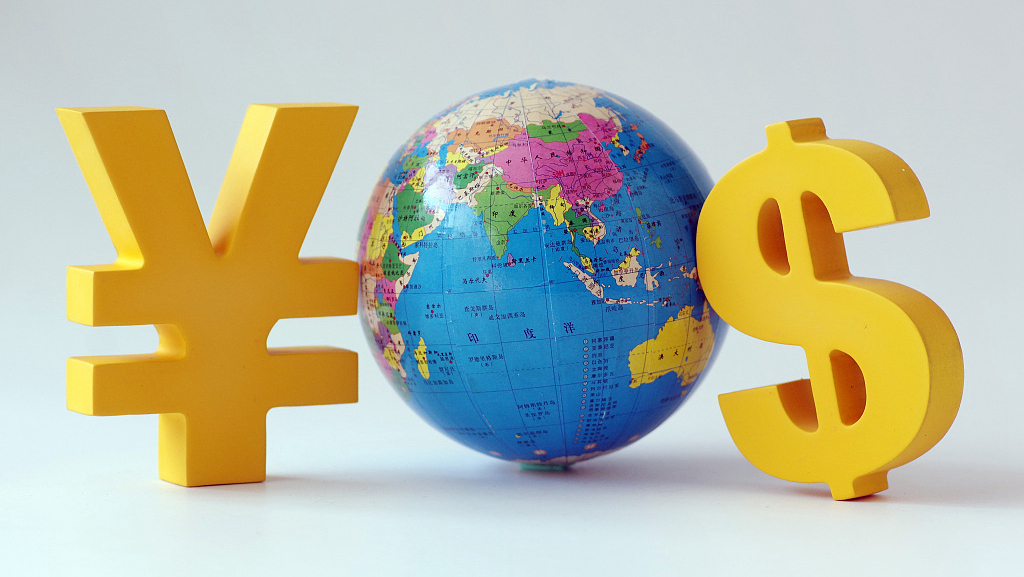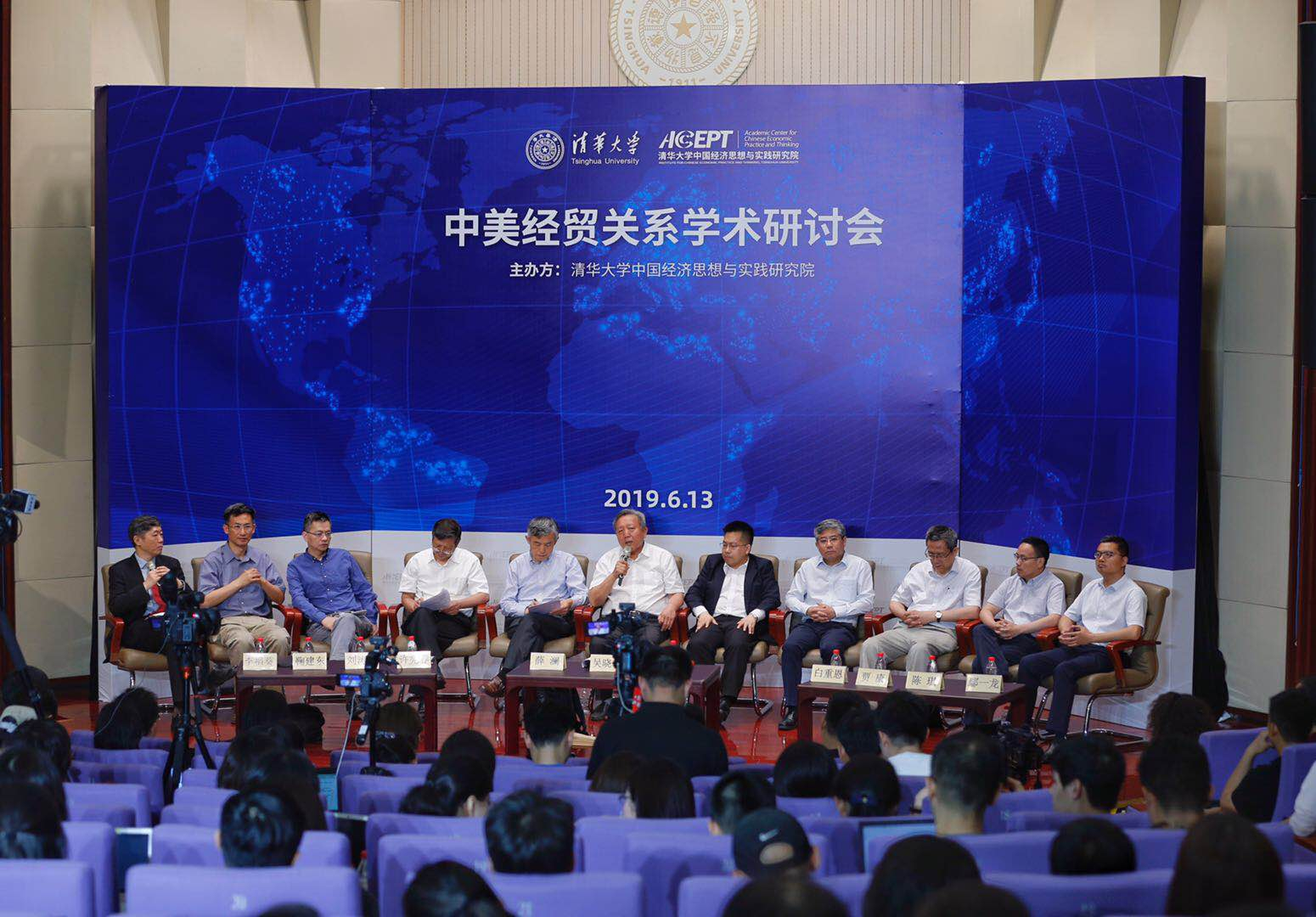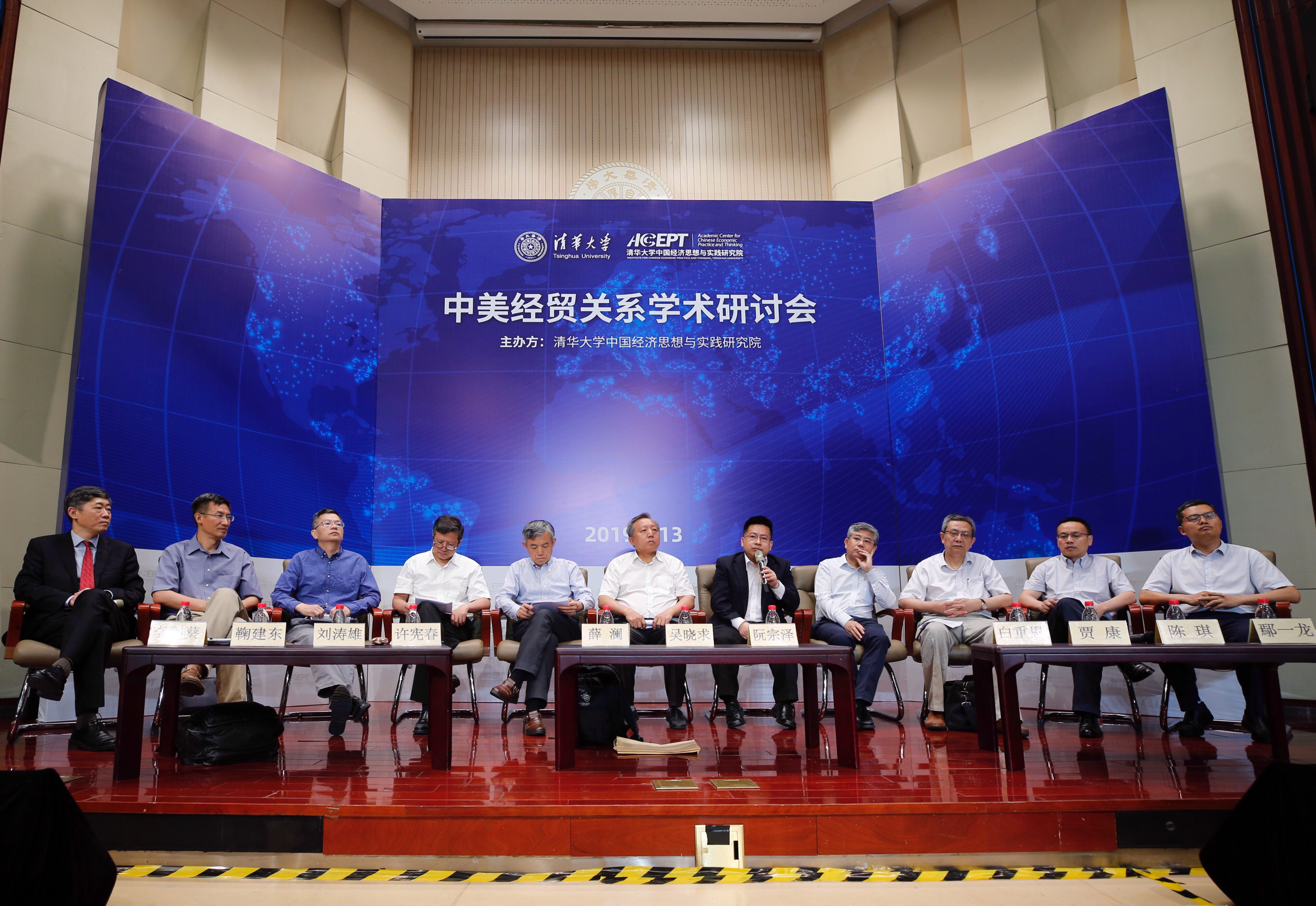

Top Chinese experts on Thursday condemned the U.S.' savage moves in approaching trade issues with China and other countries, warning that Washington is underestimating the disruption risks to the global value chain through its protectionist behavior.
The experts and government advisers sounded the alarm at a seminar on China-U.S. trade talks held at Tsinghua University in Beijing.

On June 13, the Sino-U.S. Economic and Trade Relations Symposium was held at Tsinghua University in Beijing. /Xinhua Photo
China and the U.S. have been at loggerheads over trade since last year. Tensions have escalated after the administration of Donald Trump blacklisted Chinese tech giant Huawei under the pretext of posing national security risks.
"The United States is trying to separate China from the global value chain and expose the global value chain to systemic risks. Both the U.S. government and academia are underestimating the possible impact of fragmentation of global value chains," Ju Jiandong, director of the Center for International Finance and Economic Research of Tsinghua University, said at the seminar.
According to Ju, if the output value of the top 40 or 50 Fortune 500 companies falls by 25 percent, the reaction of Wall Street will be much more significant than what happened in the wake of the Lehman Brothers' downfall in 2008, which will trigger another collapse of the global financial market, and the United States will be inevitably greatly affected.
Ju's words were echoed by Li Daokui, dean of the Institute for China's Economic Practice and Thinking at Tsinghua University, who said, "The economic and trade relationship between China and the U.S. is the most crucial link in global economic and trade relations, closer than the economic and trade relationships between U.S. and EU in the 1930s. Breaking China-U.S. trade relations is actually destroying the global value chain of production, and the consequences may be far more than the Smoot-Hawley Tariff Act."

On June 13, the Sino-U.S. Economic and Trade Relations Symposium was held at Tsinghua University in Beijing. /Xinhua Photo
In 1930, the United States passed the Smoot-Hawley Tariff Act, which required tariffs be raised to historically high levels, mainly for Europe, resulting in global trade falling by 66 percent, and the U.S. unemployment rate rising from 7.8 percent to nearly 25 percent. Within three years, it triggered a global economic depression, wreaking havoc in Europe.
Less than 90 years on, the current U.S. administration seems to be turning its back to history. Since taking office, Trump has gone further and further down the road of unilateralism and protectionism by threatening or launching trade wars.
In Li's opinion, the U.S. started the trade war, because of the faulty economic and social development there. The U.S. government is eager to tackle its shortcoming and has adopted a number of policies under the guise of "America First" policies that do not conform to the basic principles of economics.
The United States government wants to restrain China's development by imposing high tariffs on Chinese exports to the U.S. and restricting the development of Chinese high-tech companies. The strategy may work in the short term, but in the long run, the most serious loss will be borne not by China or the United States, but the entire human society. This practice will completely disrupt the division of labor system of the global industrial chain, resulting in reduced efficiency, and will sacrifice the long-term interests of all humankind.
Liu Taoxiong, head of the School of Social Sciences at Tsinghua University, believes that after several waves of globalization, the global division of labor system is now very detailed. The United States attempts to use Sino-U.S. trade as an important card to achieve its strategic goals. This choice is wrong, as this is equivalent to sacrificing the long-term interests of all humankind to realize its "America first" strategic intention.
Although the U.S. government has been putting extreme pressure on China, China is capable of meeting the challenges posed by trade frictions.
"China has the most complete industrial chain in the world. Never underestimate the resilience of China's economic structure and market size. Although (trade frictions) will bring us short-term pressure, it will not affect China's progress, because China continues to promote market-oriented reforms and is constantly opening up," said Wu Xiaoqiu, vice president of Renmin University of China.
(If you want to contribute and have specific expertise, please contact us at opinions@cgtn.com.)

Copyright © 2018 CGTN. Beijing ICP prepared NO.16065310-3
Copyright © 2018 CGTN. Beijing ICP prepared NO.16065310-3